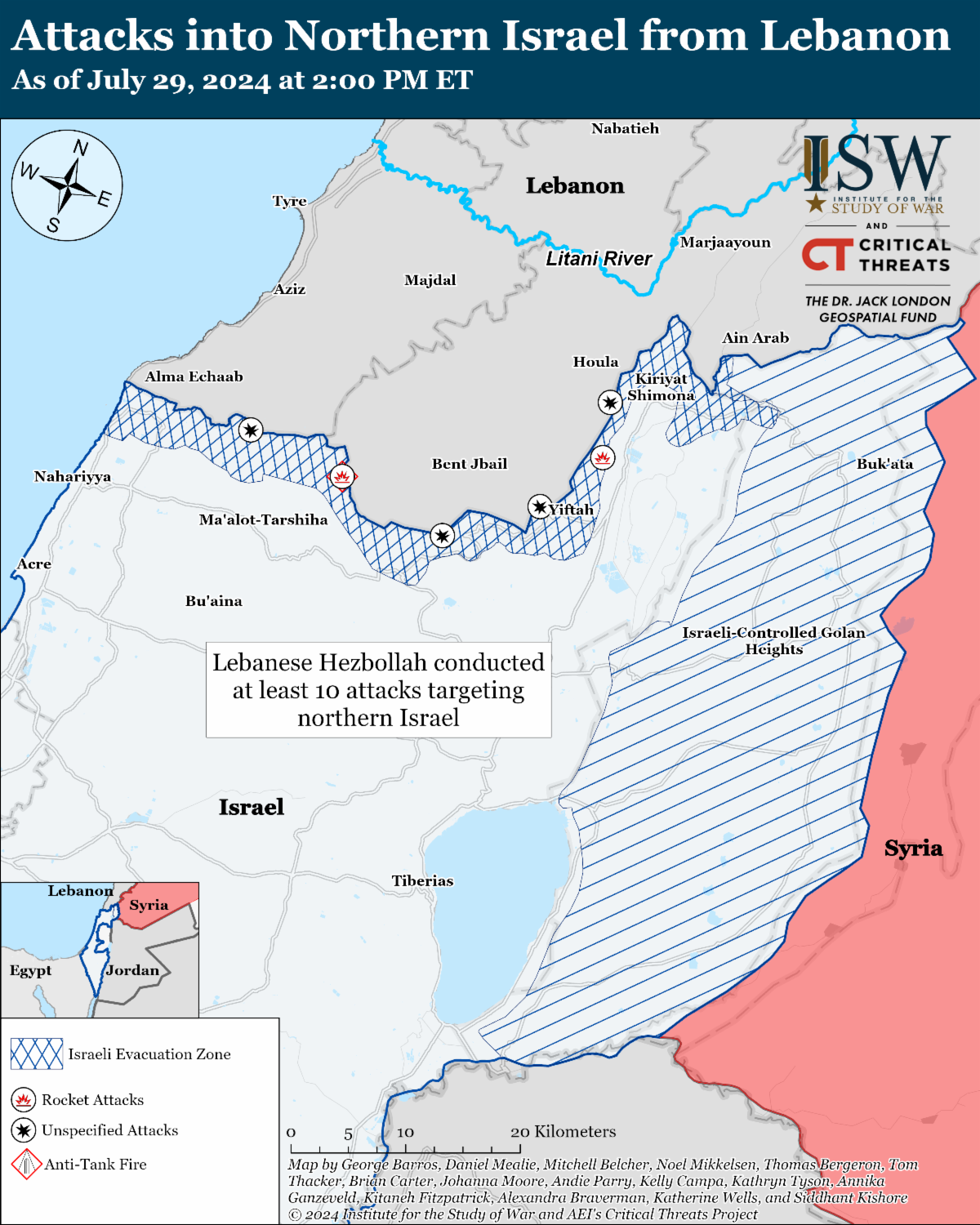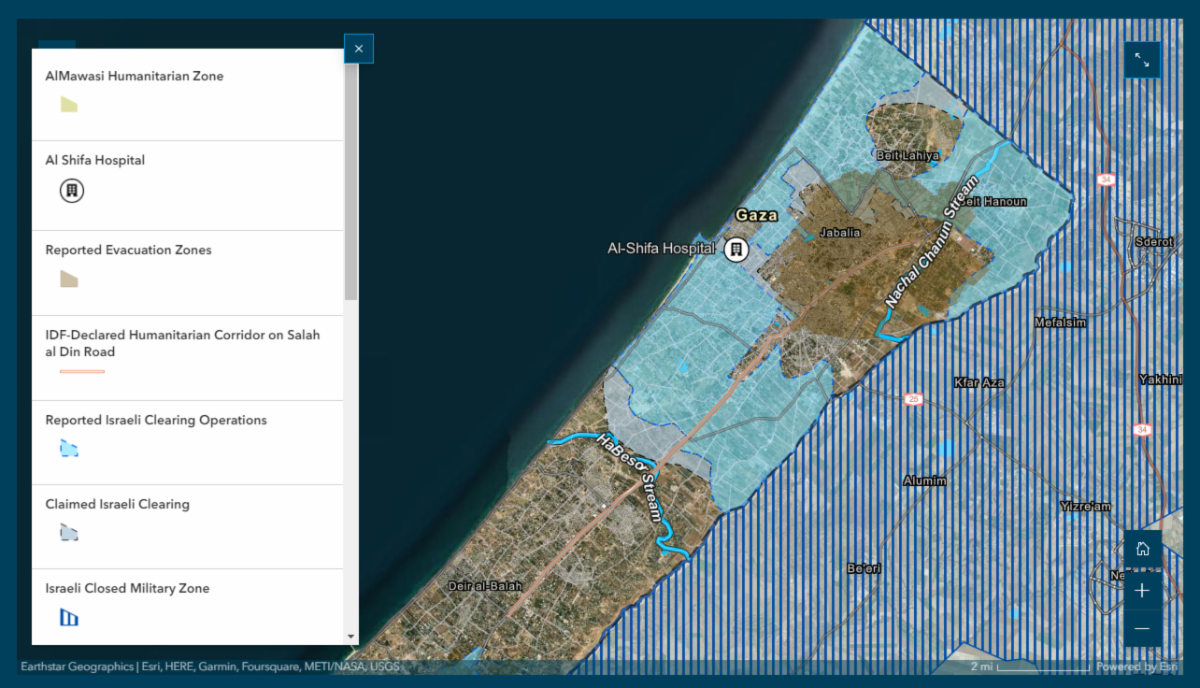The Israeli Security Cabinet approved an Israeli military response against Lebanese Hezbollah on July 28. The Israeli Security Cabinet authorized Israeli Prime Minister Benjamin Netanyahu and Defense Minister Yoav Gallant to determine the “manner and timing” of Israel’s retaliation for the July 27 rocket attack on Majdal Shams in the Israeli-controlled Golan Heights. Lebanese Hezbollah likely conducted the attack, which killed 12 Israeli children. Hezbollah’s decisions—including the Hezbollah decision to shift to using more advanced weapons systems to attack Israel—increased the risk that a Hezbollah attack would cause significant Israeli civilian or military casualties, either by design or incidentally. Israeli military and political officials vowed immediately after the attack to respond “harshly” and "take Hezbollah backwards."
Unspecified Israeli security officials stated that Israel is ready to implement a response plan “without delay” following the Security Cabinet’s approval. Security cabinet approval is required by law for significant offensive military operations. The extent and strength of Israel’s response is unclear as of this writing, but the IDF reportedly formulated numerous attack scenarios that vary from “more and less stringent” courses of IDF action. Previous IDF retaliatory strikes in this war have typically struck more sensitive targets located further north in Lebanon, such as higher value munitions or training sites. The attack on Majdal Shams on July 27 risks triggering a much larger or lengthy response, though, given that the Majdal Shams attack was the deadliest attack on Israeli civilians since the war began. A Hezbollah official told Western media that the group began moving its precision-guided missiles to avoid losing necessary assets in preparation for the attack.
Hezbollah officials are messaging that Hezbollah does not want an all-out war, likely in an effort to deescalate the situation. Hezbollah officials told Western media on July 29 that Hezbollah does not want a “full-blown war” with Israel.
Israeli officials have also expressed that Israel does not want an all-out war at this time. Unspecified Israeli officials speaking with Israeli and Western media clarified on July 29 that Israel’s response will be “limited but significant” and that Israel has “no intention” of entering an all-out war with Hezbollah. An Israeli diplomatic source told Reuters that Israeli leaders estimate that Israel’s response will not lead to war with Hezbollah as it would “not be in [Israel’s] interest at this point.”
Key Takeaways:
- Iran: Iranian President Masoud Pezeshkian appointed former Mohammad Khatami and Hassan Rouhani administration officials as his first vice president and chief of staff, respectively.
- Lebanon: The Israeli Security Cabinet approved an Israeli military response against Lebanese Hezbollah on July 28 as both Israeli officials and Hezbollah messaged that they do not want “all-out war” at this time.
- Gaza Strip: Unspecified Israeli negotiators told an Israeli military correspondent that they are pessimistic that Israel and Hamas will reach a ceasefire agreement following a meeting with mediators in Rome on July 28. Separately, the IDF detained nine Israeli soldiers on July 29 for alleged "substantial abuse” of a Palestinian fighter whom the IDF detained for questioning.
- West Bank: The IDF Central Command commander said that the IDF has increased security around Israeli settlements and increased “offensive” measures against Palestinian fighters in the West Bank.
| 






 [국방부] 두세 살배기 자녀 두고 낙동강 전선에서 결사항전... ...
[국방부] 두세 살배기 자녀 두고 낙동강 전선에서 결사항전... ...
 [ISW] 러시아 공세 캠페인 평가, 2024년 7월 29일
[ISW] 러시아 공세 캠페인 평가, 2024년 7월 29일